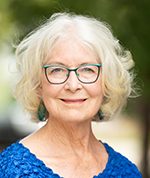
Armed with new titles, student government eyes Rec Center expansion
Your student government controls the largest student-run budget of all public universities in the country, and arguably has the most power.
With your student fees, it funds and oversees several major operations on campus, including the University Memorial Center (UMC), the Wardenburg Health Center and the Student Recreation Center.
And you’re going to hear more about that last one, because a vote on whether to hike student fees to pay for a multi-million-dollar expansion and renovation of the Rec Center will likely be on the ballot next spring.
The University of Colorado Student Government, or CUSG, is actually a new name and acronym approved for the organization last spring.
It was formerly known as the University of Colorado Student Union, a name that student leaders say was too confusing. According to Anthony DeLaRosa, CUSG chief of staff, some students thought it was a building, while others thought it was some kind of labor union.
“The name didn’t exactly explain to the students who we were or what we did,” he says.
Three students are elected each year to serve as the equivalent of your student body presidents. They used to be called “tri-executives,” but that title got changed last spring too. Now there is a president, a vice president for external affairs and a vice president for internal affairs.
“People didn’t know what a tri-executive was, either,” DeLaRosa says. “When we talked about ourselves, we spent more time explaining what UCSU was and what a tri-executive was than explaining what we actually do.”
The structure of CUSG is similar to that of the federal government. There is an executive branch (the president and vice presidents), a judicial branch and the Legislative Council. (Like Congress, Legislative Council is divided into two houses, the Council of Colleges and Schools and Representative Council. They meet on Thursdays at 7 p.m. in UMC 247.)
Plus, there are a host of joint boards that govern entities like the UMC, the Rec Center and Wardenburg. For instance, there is a board that oversees the campus radio station KVCU, there is one responsible for bringing cultural events to campus and there is one for the Women’s Resource Center.
So there are plenty of opportunities to serve, and it looks good on a resume. You can check out the full list at www-ucsu.colorado.edu.
Heck, even casting your vote when it comes to election time would be a start. In most spring elections, only 17 percent to 20 percent of the student body votes, according to Peter Swanson, CUSG vice president for internal affairs. One problem with that is, to approve an increase in student fees, for instance, at least 25 percent of the student body must cast votes (and then it must pass, of course).
In past years, the student government has found a way around that, like in 2004 when, after turnout was less than 25 percent, Legislative Council voted to approve new fees for the construction of buildings on campus, more than doubling student fees over a period of four and a half years.
Swanson says student leaders are in the process of examining the apparent loophole that allows fees to be increased by Legislative Council. He says there are some inconsistencies in CUSG’s own bylaws and other documents regarding the 25 percent threshold and whether the legislative branch can override that.
Hopefully that issue will be sorted out before the spring elections, when the fee hike for the badly needed improvements to the Rec Center will be on the table for a student vote.
Swanson says student leaders conducted two surveys on the Rec Center renovation and expansion last spring, one to gather feedback on what students would like to see in the facility, and the other on what they would be willing to pay in fees.
According to Swanson, the plan for the facility will be drafted over the next six months, and a final survey will likely be conducted in February, before students vote on the referendum.
Swanson says student leaders hope to increase voter turnout and build support for the Rec Center project by word of mouth: visiting with every single one of the 300-plus student groups on campus.
Regardless of the fate of the Rec Center project, DeLaRosa and Swanson emphasize the importance of getting involved in student government, and having a say in how CUSG’s $36 million budget gets spent.
“I want students to realize that we’re here for them, first and foremost,” DeLaRosa says.
Swanson adds, “It makes it so much easier when people come forward and tell us what they’d like to see.”














